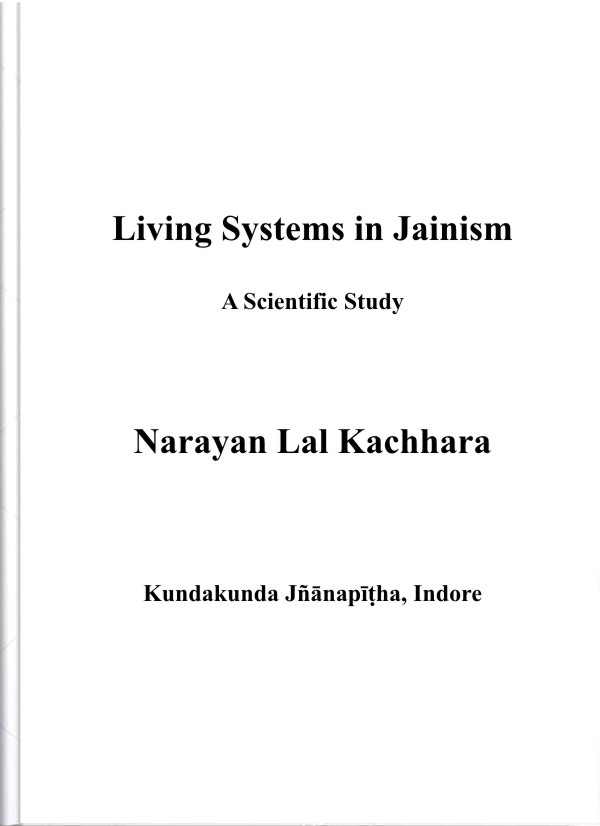States of Karma
Karmas experience the transformation of their state through the activities of beings. These transformations can be favourable or unfavourable, depending upon the efforts made. This is the principle by which a soul can make spiritual progress.
There are ten states of karma:
1. Bandha (Bound Karma). This refers to karma in a bound state. Only impure souls have bound karma; pure souls are free of karma.
2. Udvartana (Augmentation). Augmenting the duration and intensity of the karmic matter by means of the special energy of the soul. While bonding new karma, the soul augments the duration and intensity of old karma of the same type.
3. Apavartana (Attenuation). By the force of its right knowledge, worldview and conduct or by the special energy of the soul, the soul reduces the duration and intensity of its old karma while bonding new karma. A reduction in age-determining karma commonly takes place, except in the case of hellish beings; souls in their last birth before emancipation (charamshariri), Tirthankara, emperors (chakravarti), and human beings have an age of innumerable years.

Figure 1 Karma body: The approximate proportions of different karmas and their interaction with the gross body.
4. Satta (Existence). This is the time for which the karma exists in bonded form.
5. Udaya (Rise). The state when karma starts producing fruits. The fruition of karma and the experience of the effects of rising karma are two different things. Karmas which bond merely by the actions of the body, mind, and speech (without any passions) do not make the soul experience the fruits of their rise. This kind of rise is only a symptomatic rise (pradeshodaya). Karmas which are bonded under the influence of the passionsmake the soul experience their effects: this is called consequential rise (Vipakodaya).
6. Udirana (Premature rise). The karmic material clusters which have yet not risenare made to rise prematurely by means of special efforts. Normally, premature rise is only possible forkarma that is in the process of rising. By this process, the karma that is scheduled to rise and create an intense experienceis made to rise prematurely and create only a mild experience.
The principal cause of premature rise is yoga, activity of the mind, speech and body. Examples are fasting, samayika, fasting with samayika (renunciation and remaining in a state of equanimity for 48 minutes), yoga exercise (asana) and breathing exercise (pranayama), breathing exercise with contemplation, activity of body and mind, recitation (japa), activity of speech, recitation and contemplation, activity of speech and mind, self study (swadhyaya), contemplation, activity of mind and identification with soul, etc.
7. Samkramana (Transformation). Mutual transfer of karmic clusters of the same kind by the special energy of the soul. Such transfer takes place in the nature, duration, intensity and quanta of the karmic mass. For instance, when a person is experiencing the result of pleasant karma, his or her pleasant karma may be transferred to an unpleasant karma if there is a strong rising of an inauspicious karma at that moment. Mutual transfer between empirical knowledge (matijnana)-obscuring and articulate knowledge (srutijnana)-obscuring karma and between high-status and low-status karma is common.
There are some exceptions to this process of transfer. Transformation can take place between subtypes of the same kind of karma, but one basic type of karma cannot be transferred into another. Mutual transfer is not possible among the four varieties of age-determining karma. Similarly, there cannot be mutual transfer between the subtypes of deluding karma, viz., view-deluding and conduct-deluding karma.
This process involves the mixing of newly bonding karma with old karma of the same nature to produce new, transformed karma. The power of transformation depends on the state of consciousness of the soul: the greater the soul's explicit consciousness, the greater the power of transformation. A very impure soul can hardly affect any transformation.
8. Upasamana (Subsidence). A soul can suppress deluding karma from rising and giving fruit by successfully employing the effects of substance, place, time, and emotions. Suppression can be of two types:
(a) Antahkarana (internal) suppression: the rise of karma occurs earlier or later than the prescribed time of fruition.
(b) Suppression of karma in the present state: the karmas that are currently in a dormant state are suppressed.
9. Nidhatti (Restricted transformation) makes the karmic matter incapable of all processes except the reduction or augmentation of the duration and intensity of karma, by means of the special energy of the soul.
10. Nikachana (Non-transformable) makes the karmic clusters incapable of all processes by means of the special energy of the soul. The bonding of nikachana karma is due to strong passions. Psychical nikachana karmas are more dangerous than biological nikachana karmas, with the most dangerous being the nikachita wrong belief-deluding karma, which is the helping cause in the bonding of all other karmas.
There are two broad divisions in the nature of the transformation of karmic bondage: first, a loosely-bound karma is transformed into a closely-bound one; second, closely-bound karma is made loosely-bound. Because of evil propensities, the loose state of bondage can become tough and hard; similarly, because of good propensities the tough state of evil bondage can become loose and soft.
 Dr. N.L. Kachhara
Dr. N.L. Kachhara
